Imagine you are craving pizza. You get on Google and you search “best pizza” and a couple of recommendations pop up. Most of the time – the top 3 4 search results are of the best pizza in your locality.
This is an example of Local SEO.
As a small business, any form of visibility helps. And if the big guys are taking up all the space on Google search with their sponsorships. It’s time for you to reign locally!
How can optimising local SEO be awesome for your small business? Here’s a short guide!
What is Local SEO?
Local SEO stands for Local Search Engine Optimization. It refers to the process of optimizing a website or online presence to increase its visibility and rankings in local search results.
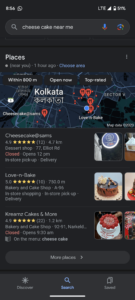
When someone searches for a product, service, or business in a specific location, search engines like Google aim to provide the most relevant and useful results. By improving your SEO for location-based search, your business gets more visibility in the area that you are in.
Here are some interesting local SEO statistics from Think with Google:
- 76% of people who search on their smartphones for something nearby visit a business within a day
- 30% of all mobile searches are related to location
- 28% of searches for something nearby result in a purchase
Even though local SEO can do wonders for brick-and-mortar stores, it is also very useful for online businesses that have geographically limited target audiences.
For example, Those who sell fresh non-packaged food online, cakes, fresh organic products like groceries, juices etc. would generally not survive 4-5 days of shipping time.


Local SEO is also incredibly important for brands with an omnichannel presence since it would help increase footfall in their physical stores.
Here are more omnichannel strategies by Blissclub- India’s leading activewear for women.
How does local SEO optimisation help small businesses?
Local SEO can be incredibly beneficial for small businesses in several ways:
1. Increased online visibility
Local SEO strategies help small businesses appear in local search results, making it easier for potential customers in their area to find them.
This increased online visibility can lead to higher website traffic, more inquiries, and ultimately, more customers.
Related read: eCommerce SEO: Your complete guide
2. Targeted traffic
Local SEO allows businesses to target customers specifically in their geographic area. This means that small businesses can attract highly relevant traffic from people who are actively searching for products or services nearby.
This targeted traffic has a higher likelihood of converting into actual customers.
3. Competitive advantage
By implementing effective local SEO practices, small businesses can gain an edge over their local competitors.
Appearing prominently in local search results, having positive customer reviews, and providing accurate and consistent business information can establish trust and credibility, making customers more likely to choose them over competitors.
4. Increased foot traffic
For small businesses with physical locations such as brick-and-mortar stores or restaurants, local SEO can drive foot traffic to these establishments.
When people search for businesses “near me” or in a specific location, local SEO helps ensure that your business appears in those search results, making it more likely for people to visit your physical location.
5. Cost-Effectiveness
Local SEO is often more cost-effective compared to traditional advertising methods. Many local SEO techniques, such as optimizing online directories or managing customer reviews, can be done at little to no cost. This makes it an ideal marketing strategy for small businesses with limited budgets.
eCommerce categories that benefit the most from local SEO
Here are a few Direct-to-Consumer (D2C) categories that can benefit the most from local SEO:
1. Home Services
Online brands offering home services such as plumbing, electrical work, cleaning services, or landscaping can greatly benefit from local SEO.
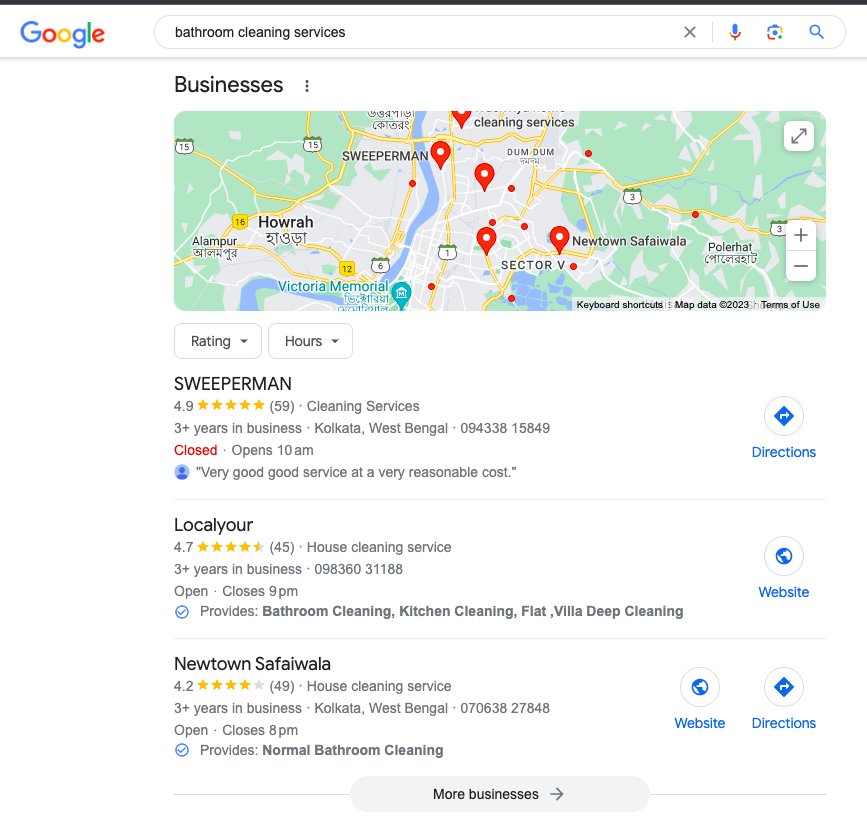
When people search for these services in their area, a strong local SEO presence can help you appear prominently in search results and increase your chances of being hired.
Related read: Top eCommerce service business ideas and how to get started
2. Food and Beverage
Online brands in the food and beverage industry, such as local bakeries, gourmet food shops, or speciality coffee roasters, can benefit from local SEO.
People often search for specific food items or drinks in their vicinity, and optimizing for local SEO can help these brands capture that demand and drive online orders or foot traffic to their physical locations.
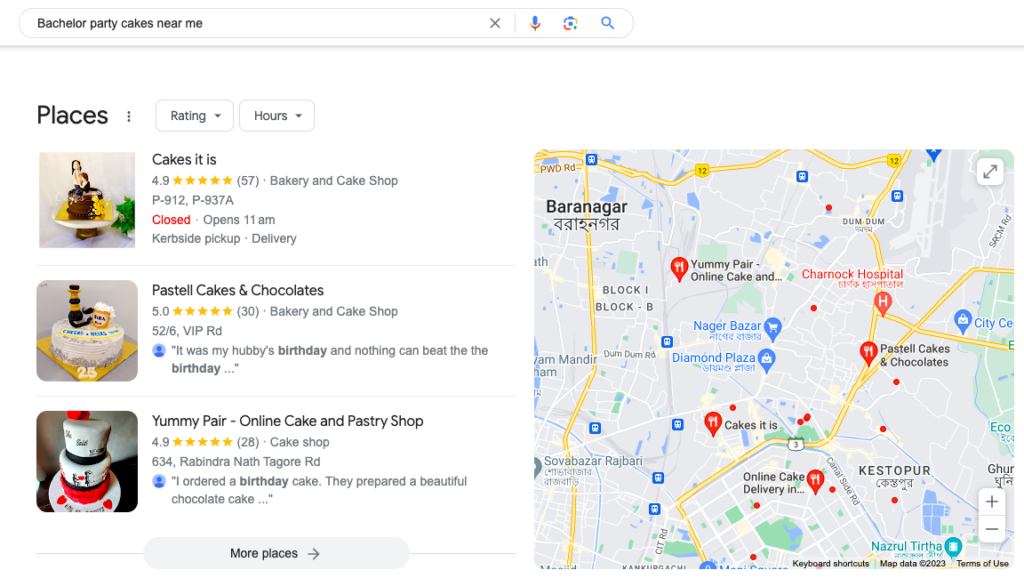
3. Professional services
Online brands offering professional services like legal, accounting, marketing, or consulting services can also benefit from local SEO.
Many people prefer working with professionals in their local area, and by optimizing their online presence for local SEO, these brands can attract clients in their target geographic region.
4. Health and Wellness
Online brands in the health and wellness sector, such as fitness trainers, yoga studios, or natural skincare products, can leverage local SEO to target customers in their local area.
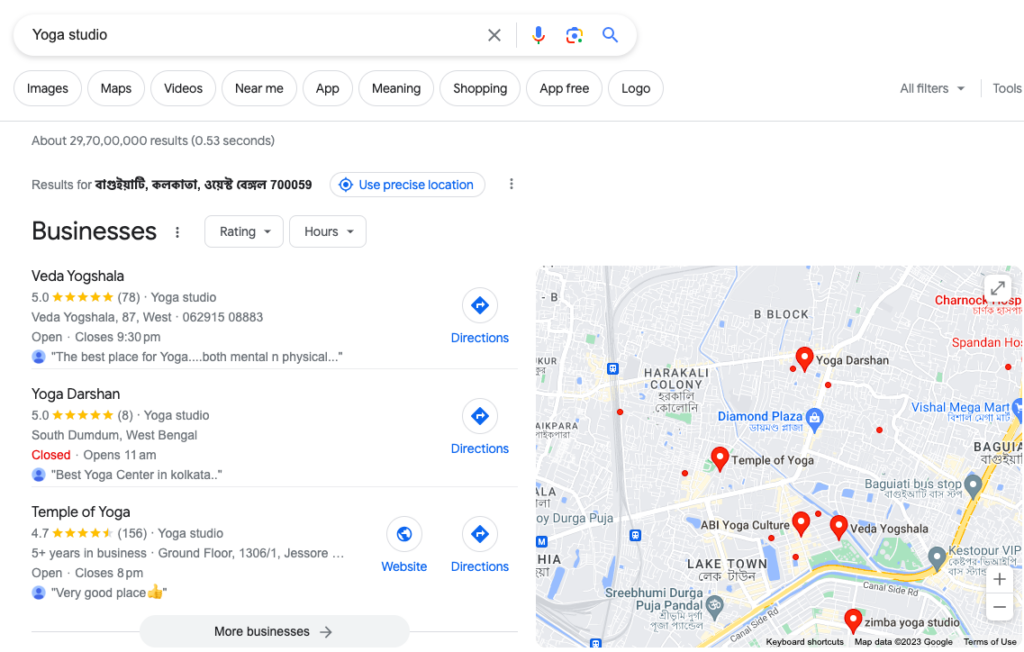
5. Online retail brands
Even though online retail brands can ideally ship anywhere since the products don’t have the risk of spoiling during transit, there are some eCommerce brands that can benefit from local SEO because of their region-specific characteristics.
For example, a brand that sells locally made crafts or unique products from a specific region can optimize its online presence for local SEO to attract customers interested in those local products.
Related read: 9 Traditional Indian products to sell online
6. Event planners
Do you want more visibility for an event that you are hosting physically? Well, the first step would be to have your own landing page that has the registration details and a payment gateway.
To increase your registrations, your event should show up on the local search when people look for things to do in that locality!
For example, the Instamojo online store – Unchi Wali Chai hosts high tea events in Bangalore where people can meet up for a lovely conversation over tea!

Are you an online seller in any of these industries? If yes! It is time to move on to the most important section of this blog: How do you actually improve local SEO?
A local SEO checklist for you
Improving your local SEO involves implementing various strategies and tactics. Here is your ultimate checklist to improve and optimise your small business for local search engine results.
1. Create and Optimize Your Google My Business Profile
Google My Business (GMB) is a crucial platform for local SEO. 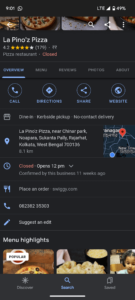
Claim and verify your small business listing on GMB, provide accurate and complete information (business name, address, phone number, website), select relevant categories, and add photos.
Regularly update your profile, respond to customer reviews, and utilize GMB features like posts and Q&A.
Your business should have a polished digital footprint for local search. Optimise for what is popularly known as the Map pack! Here is a guide by the Search Engine Journal.
2. Keep consistent NAP information
NAP stands for Name, Address, and Phone number.
Ensure that your NAP information is consistent and accurate across all online platforms, including your website, social media profiles, online directories, and review sites.
Inconsistent information can confuse search engines and users, negatively impacting your local SEO.
3. Localized keyword optimization
Identify relevant localized keywords related to your business and incorporate them into your website content, meta tags, headings, and image alt tags.
Focus on long-tail keywords that include location-specific terms. For example, instead of “bakery,” use “best bakery in [city].”
Here are the most popular websites for Keyword research and knowing what your competitors are doing:
- Semrush
- Ahref
- Uber Suggest
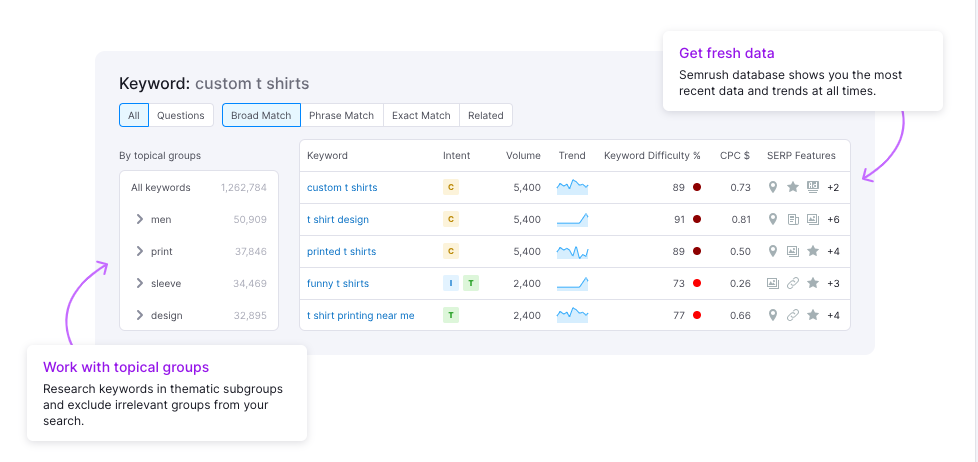
Related read: 3 keyword strategies to improve your online store SEO
4. Online Directory Listings and ratings
Create and optimize your business profiles on popular online directories and review platforms such as Google Reviews, Bing Places, Apple Maps, and industry-specific directories. 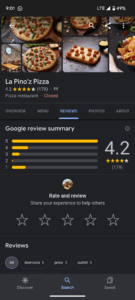
Encourage your customers to leave reviews on platforms like Google, Yelp, and other relevant review sites. Positive reviews can improve your online reputation and influence local search rankings.
Pro tip: Respond to reviews, both positive and negative, to show engagement and build trust with potential customers. And never indulge in fake reviews, especially now that the government is also taking more strict measures.
5. Local Content Creation
Create high-quality content that is relevant to your local audience. Publish blog posts, articles, or guides that address local topics, events, or trends. This can help attract local traffic and establish your expertise in the local community.
You can now embed blogs on your Instamojo website or landing page with our custom scripts feature!
7. Mobile-Friendly and Fast Website 
Most people searching for local results are on their phones. In fact, mobile accounts for 58% of all Google searches!
Your website MUST be optimised for the phone. On Instamojo, eCommerce websites are mobile responsive, load quickly, and provide a seamless user experience on mobile devices.
Here’s how the Instamojo online store Nassan Chocs shows up on the phone.
8. Local Link Building
Build relationships with other local businesses, organizations, or influencers in your area. Seek opportunities for guest blogging, collaborations, or partnerships that can lead to backlinks from reputable local websites.
These local backlinks can boost your local SEO authority.
Related read: Link Building: The Building Blocks of Your SEO Plan
9. Social Media Engagement
Engage with your local community on social media platforms. Share local events, news, or stories, and encourage user-generated content related to your business.
Social signals can indirectly influence local search rankings. It will become even more important once Google rolls out its ‘Perspective’ feature!
10. Monitor and Analyze Performance
Regularly monitor your local SEO performance using tools like Google Analytics and Google Search Console. Analyze website traffic, keyword rankings, and user behaviour to identify areas for improvement and refine your local SEO strategy.
You will know your region the best. Harness the potential of your local search landscape by being more visible to people living near you.
Don’t have an online business yet? You can start on Instamojo for free!

